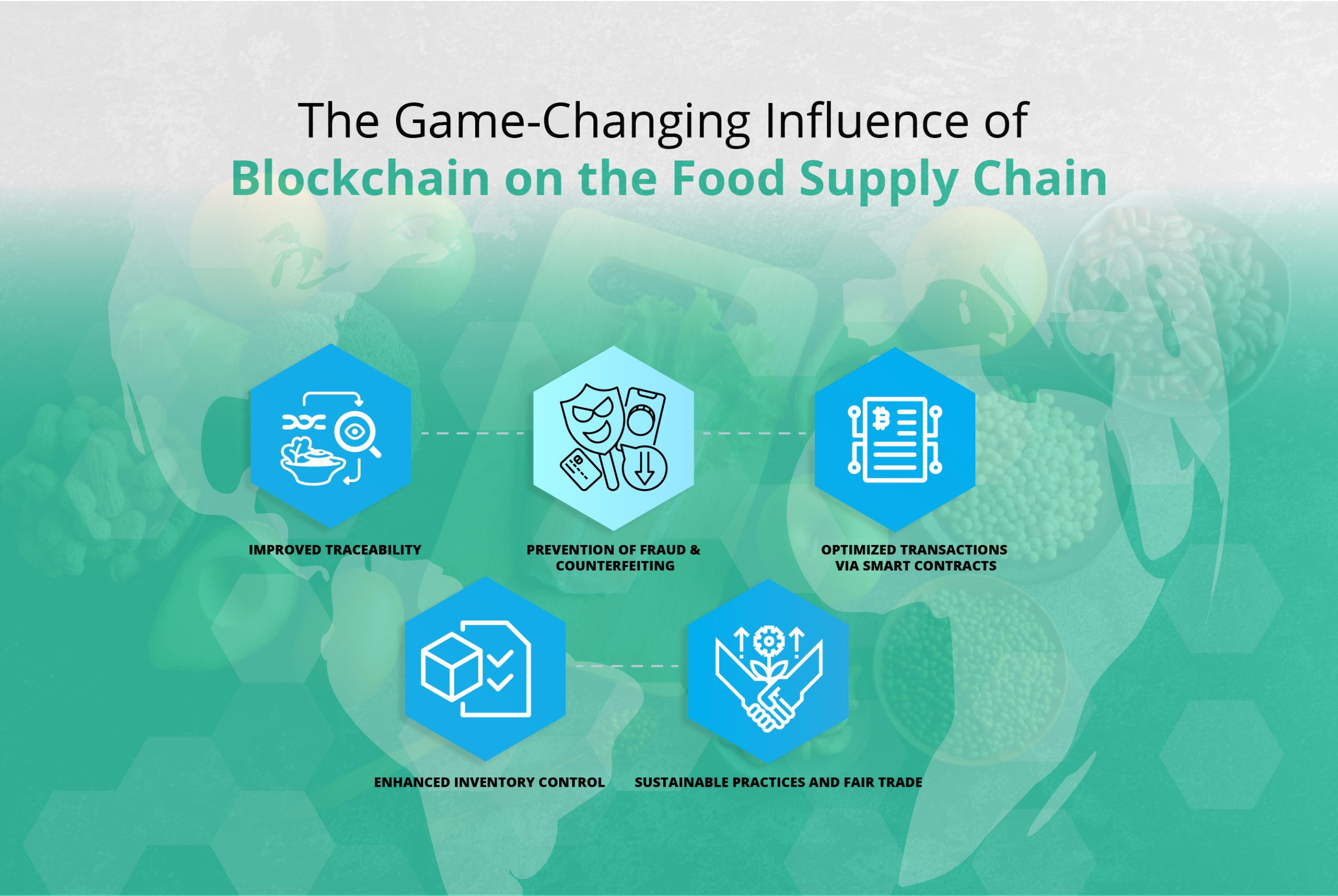The Game-Changing Influence of Blockchain on the Food Supply Chain
Blockchain is revolutionizing industries, and food supply chains are on the brink of change. The decentralized ledger system has the potential to revolutionize the way food is produced, distributed, and consumed, offering solutions to problems like traceability and fraud prevention, as well as sustainability. Let’s take a closer look at how blockchain can revolutionize food supply chains.
CORBLOCKS is a leading provider of Blockchain, AI, and IoT solutions, with a skilled team ready to support businesses in creating outstanding blockchain-based solutions to improve and optimize their existing business processes.
1. Improved Traceability
2. Prevention of Fraud and Counterfeiting
3. Optimized Transactions via Smart Contracts
4. Enhanced Inventory Control
5. Sustainable Practices and Fair Trade
1. Improved Traceability:
Blockchain’s transparency and immutable nature makes it an ideal tool for traceability. By recording every stage of production and distribution in an immutable ledger, stakeholders (including consumers) can easily trace a food product’s journey. Not only does traceability ensure authenticity and quality, but it also makes it easier to trace the source in case of food safety issues, leading to faster and more accurate recalls.
2. Prevention of Fraud and Counterfeiting:
Food fraud is a serious threat to the supply chain since it puts consumer safety at risk with its counterfeit goods. Blockchain’s capacity to provide an immutable record of transactions makes it a powerful tool in the battle against fraud. The integrity of the supply chain is maintained by this strong defense provided by this secure record. Through the use of this function, stakeholders may verify the legitimacy of products and stop the spread of fake goods, which will boost customer confidence.
3. Optimized Transactions via Smart Contracts:
With terms encoded directly into code, blockchain enables self-executing agreements, introducing the idea of smart contracts. Smart contracts have the potential to automate a number of tasks in the food supply chain, including delivery confirmations, quality inspections, and payment processing. This makes the supply chain more effective and economical by reducing the need for middlemen and streamlining transactions.
4. Enhanced Inventory Control:
Accurate and effective inventory management is made possible by blockchain’s real-time transparency. A record of each product movement in the supply chain allows stakeholders to keep an eye on expiration dates, inventory levels, and storage conditions. By doing this, waste is reduced and products are delivered to customers in optimal condition.
5. Sustainable Practices and Fair Trade:
Blockchain shows promise as a powerful instrument to advance fair trade and sustainability in the food sector. Customers may make well-informed decisions that are consistent with their beliefs by keeping track of important information about sourcing, transportation, and production techniques. Additionally, blockchain can help create transparent and decentralized markets that give small farmers and producers direct access to consumers and guarantee fair prices for their goods.
To summarise, blockchain technology has the potential to completely transform the food supply chain by offering increased traceability, reducing fraudulent activities, streamlining transactions via smart contracts, improving inventory control, and encouraging sustainable practises and fair trade. A safer, more transparent, and sustainable global food supply chain is promised by the technology’s widespread adoption in the food sector as it advances.
